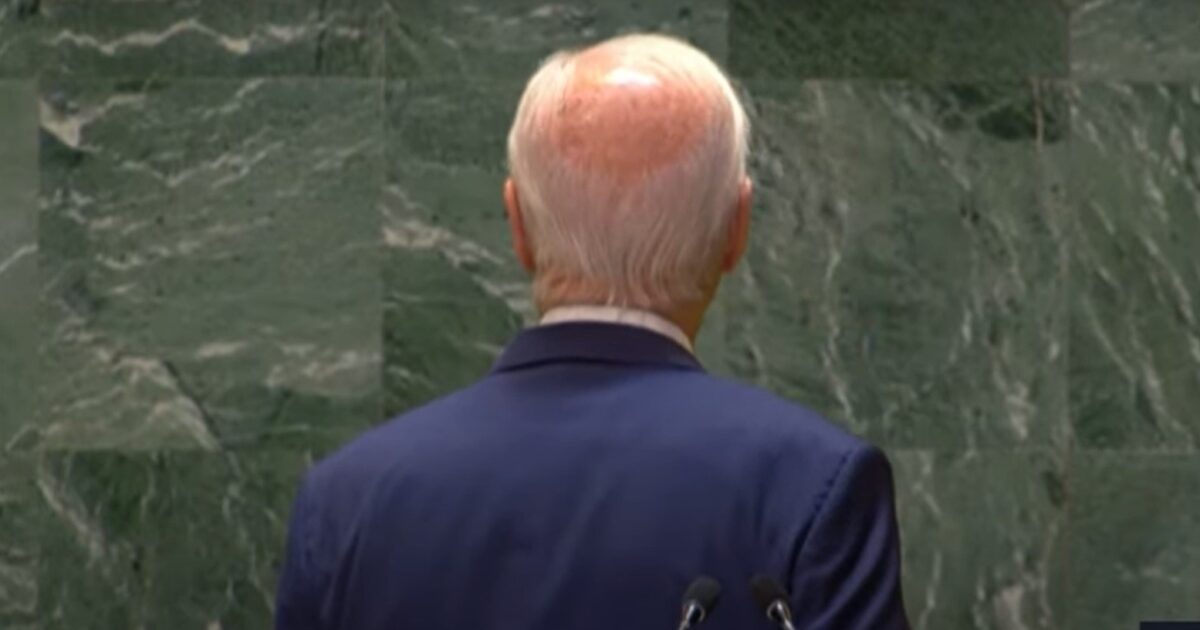We support our Publishers and Content Creators. You can view this story on their website by CLICKING HERE.

“America is governed by Americans… We reject the ideology of globalism, and we embrace the doctrine of patriotism. Around the world, responsible nations must defend against threats to sovereignty, not just from global governance but also from other new forms of coercion and domination.” — Donald J. Trump, 2018 address at the UN.
In his final address to the UN on September 24, President Biden acknowledged the global challenges: “I recognize the challenges from Ukraine to Gaza to Sudan and beyond: war, hunger, terrorism, brutality, record displacement of people, a climate crisis, democracy at risk, strains within our societies, the promise of artificial intelligence and its significant risks.”
Many of these issues existed before his presidency, while others emerged or worsened during his term. Like the UN, Biden did not resolve any of these problems.
President Trump criticized the United Nations for its ineffectiveness, particularly its inability to prevent wars or make positive global changes.
The United States, historically the largest financial contributor to the UN, has provided nearly 25% of the total funding, including about 25% of the UN peacekeeping budget.
Trump reduced U.S. funding to the organization during his presidency, citing the UN’s poor track record and demanding that other nations step up and take a more proactive role in both peacekeeping and overall contributions.
This decision was part of his broader “America First” approach, which emphasized reducing U.S. involvement in international bodies that he deemed ineffective or unbeneficial to American interests.
Not only did Biden restore U.S. funding to the United Nations, but he touted this increased funding as one of the accomplishments of his administration.
Ironically, he sees giving away free money as an achievement while ignoring the complete failure of the UN.
After four years of the Biden-UN alliance, the number of displaced people in Africa alone has increased by 40%, reaching 45 million. Today, there are 110 active, armed conflicts, resulting in a total of 120 million displaced around the world.
Despite starting his presidency with bold ambitions, framing it as “a battle between democracy and autocracy,” Biden has used the phrase less frequently each year and did not mention it even once during his final UN address.
Four years ago, in an attempt to placate liberals who criticized Saudi Arabia’s human rights record, he vowed to make the Kingdom a pariah state. This promise quickly became one of his major foreign policy blunders, leading to higher oil prices, increased conflicts, and a decline in global security.
Maintaining good relations with Saudi Arabia is essential for the U.S. due to several reasons: energy security, as Saudi Arabia plays a major role in global oil markets; regional stability, where Saudi Arabia is a key player in countering Iran and managing conflicts; counterterrorism cooperation, with Saudi intelligence vital in combating groups like al-Qaeda and ISIS; arms sales, which strengthen economic ties through defense industries; geopolitical influence in the Muslim world; economic cooperation beyond oil, with opportunities in sectors like technology; and strategic military presence, as U.S. military bases in Saudi Arabia are crucial for regional operations.
As a result of Biden insulting one of the most crucial U.S. allies in the Middle East, he faced skyrocketing gasoline prices and a surge in conflict across the region.
Hamas and Hezbollah launched attacks on Israel, the Houthis targeted U.S. ships, and Iran ramped up its support for terrorism and destabilization efforts.
Meanwhile, Biden’s friends at the UN were powerless to stop any of it. Trump, on the other hand, knew how to handle autocrats and negotiate with Saudi Arabia to keep oil prices low.
Biden’s weakness only emboldened Iran and its allies to escalate violence. In the end, Biden had to go, hat in hand, to the Saudis, but even then, he couldn’t fix the problems.
The UN, however, issued its usual statements condemning the violence—statements that have so far failed to stop the Houthis, Hamas, Hezbollah, or Iran.
In another joint failure, the UN was unable to stabilize Afghanistan. Meanwhile, Biden’s botched withdrawal not only cost American lives but also made the U.S. appear weak on the world stage.
He has also been unable to bring an end to the war in Ukraine, though he remains deeply committed to sending money, with new defense assistance already set in motion just two days after his UN address.
If he is so committed to defending Ukraine and believes the UN is a necessary global peacekeeper, why didn’t he urge the UN to send troops to Ukraine?
This single point underscores both his weakness as a leader and the UN’s complete ineffectiveness, raising the question of why the U.S. should continue funding both the UN and Ukraine.

 Conservative
Conservative  Search
Search Trending
Trending Current News
Current News 


